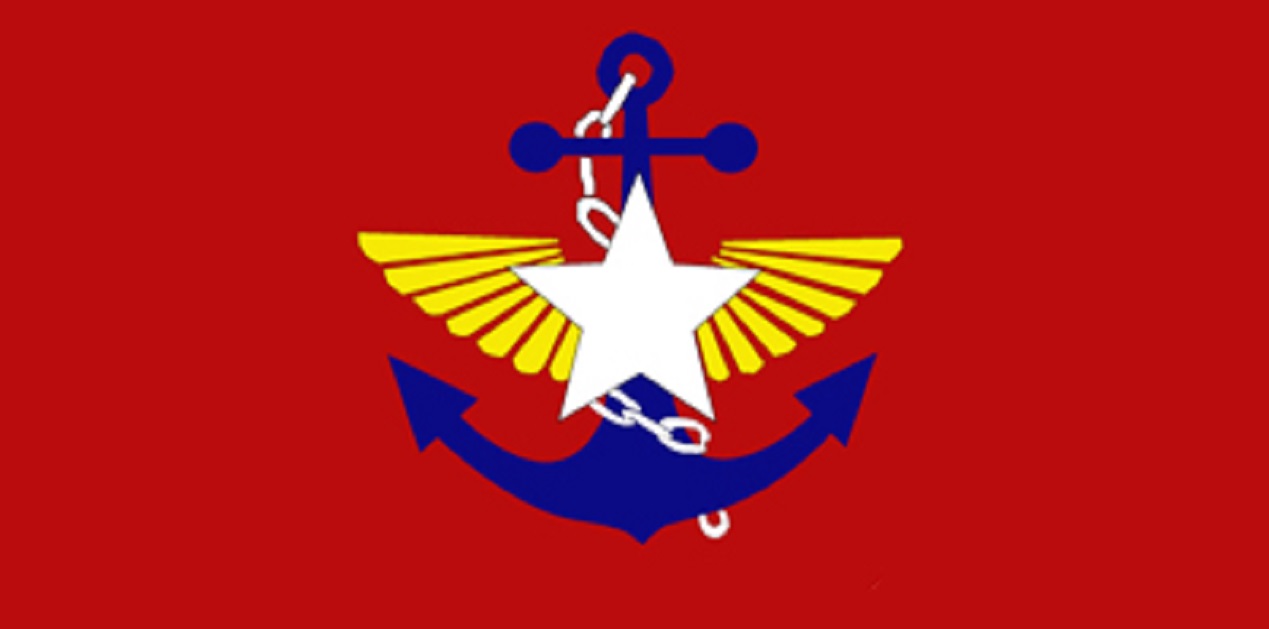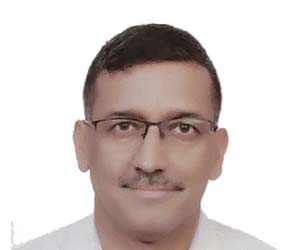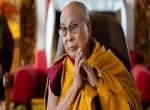The Tatmadaw, as the Myanmar Armed Forces are referred to, celebrate their 75th Anniversary Day on 27 March 2020, i.e. today. The Tatmadaw Nay as it is also referred to, commemorates the rebellion against the Japanese occupation during World War II. This was the day when Bogyoke Aung San and his 30 Comrades, the Thakins, turned against the Japanese Fascists and drove them out of then Burma. Initially observed as the Anti-Fascist Day, the day is today observed as the Tatmadaw Day and is a national holiday, complete with a major parade at Nay Pi Taw. Last year, Vice Senior General Soe Win delivered the speech on behalf of Senior General Aung Ming Hlaing who was unable to do so due to a knee injury. This year, in deference to the needs of social distancing due COVID-19, the parade stands indefinitely postponed. This year is the Diamond Jubilee Year and Commander in Chief of Defence Services Senior General Min Aung Hlaing released a Message of Greetings where he reiterated the Three National Causes and Four Solemn Vows of the Tatmadaw Members.1
On this 75th Anniversary Day, the present Tatmadaw is a shadow of its former self. A major disconnect between the troops on ground i.e. their conduct, living conditions, sources of income and pay scales vis-à-vis the senior officers is evident to all observers. The recent overrunning of a Battalion and capture of the Battalion Commander by the Arakan Army is a blot on their abilities. Repeated tactical and operational losses at the hands of the Arakan Army in the Rakhine and Chin States reveal a less than competent, higher leadership at the operational and strategic levels. Rampant and inefficient use of artillery barrages and fighter jets for strafing and aerial bombing with massive collateral damage is symptomatic of a mindset which over relies on conventional asymmetries to offset un-conventional disadvantages of terrain, intelligence and training. Such actions have further alienated the Tatmadaw from the locals, depriving them of local intelligence…a sine qua non for counter insurgency. The Rohingya Crisis that the Tatmadaw has foisted upon the nation is an example of how short sighted military leadership has cost the Government aplenty.
Overall, the Tatmadaw today has been found somewhat wanting in working towards delivery the national level aspirations. This is a major mismatch between capability and aspiration which the military leadership does not publicly acknowledge, either because they do not realise it, or they are do now want to highlight it at the peril of losing face and space in the national narrative.
So what then is the way forward for the Tatmadaw to recover lost ground, reputation and relevance today? To begin with, acknowledging the problem is the half the battle. Senior commanders in Tatmadaw need to start with identifying and acknowledging the problem that besets the organisation. There seems to be a total lack of honest introspection in the organisation fuelled by an overbearing sedition law which threatens everyone even constructively critical of the organisation. Prima facie, the lucre of high offices, the comfortable bogey of national security and the need to secure ones position and status in the national leadership spectrum, drives all higher level military motivation. Honest introspection will naturally lead the decision makers to the correct path for reviving the Tatmadaw.
Secondly, politics has been the bane for militaries all the world over. So it is for Tatmadaw. Truly, the Tatmadaw is in an unenviable position. Having to extricate itself from a system where it has been ruling the roost for decades, while securing itself from prosecution, it is in a difficult and vulnerable situation. If it lets go of the power, it makes itself vulnerable to prosecution by civilian law makers. Thus, really it has no option but to hold on to the power. Militarily, unless it is able to let go of the politics, there is unlikely to be any improvement in the quality of soldiering that it can produce. When commanders in chain are involved in politicking, it is at the cost of military efficiency. Politics has become an expensive distraction for a force which is paying the price in blood. The question is, with elections looming and with the hold that Aung San SuuKyi has over the military, can she convince them to take a step back, in exchange for a degree of immunity which they would desperately need, in order to step back? In an article in The Economist entitled ‘General Myopia: Why Myanmar’s army is wrong to reject limits on its power’, the author argues that:
Amending the constitution to provide more of a semblance of civilian supremacy over the armed forces would be a good start. The army could cede control of the various security ministries, for example, or give up its voting majority on the special government committee empowered to declare a state of emergency. At one level, it would be merely a token gesture: Miss SuuKyi surely knows that the army would not hesitate to stage another coup if it felt truly threatened. But over time, the new rules might evolve from polite fictions into institutional norms.2
Thirdly, once the military has been able to move away from the politics, it has to undergo major internal reforms to convert into the much touted and sought after Standard Army. This means it needs to withdraw, introspect, go back to the basics, re-equip and train, before they can be re-launched into operations. Further, the strategy of launching operations on all fronts against a large number of Ethnic Armed Organisations (EAOs) goes against the basic military principle of concentration of force. This is especially true against evolved EAOs who collaborate under the moniker Brotherhood Alliance. Observers often note that the battlefield turnout and body language of the EAOs is far better than that of the Myanmar Armed Forces…which reflects better confidence, a product of better competence, which eventually translates into better military successes for the EAOs.
Fourth, it has to reconnect with its troops. The route to a Standard Army has to jettison the feudal connect and develop and sustain a professional officer-man relationship where professional dissent is not seen as seditious. The rampage that the Tatmadaw troops have inflicted in their areas of operations in North Rakhine on the Rohingya populated areas as also the Arakan Army, is simply a result of undisciplined and unprofessional troops operating without any effective supervision by officers. The unspoken concept of ‘living off the land’ has to be replaced with accountability at the lowest levels.
Fifthly, back to the basics approach to counter insurgency operations which involves shunning over reliance on artillery and air, needs to be followed. It has to develop HUMINT for which it has to start behaving like a responsible and disciplined force. The Tatmadaw needs to start getting small successes before it can even dream of trying to eradicate insurgent groups of the scale, motivation and cunning of the Arakan Army.
Finally, it needs strategic guidance, either from the Myanmar civilian government, or from within. The irony of fighting a bitter insurgency with an insurgent organisation which is not even seeking separation from Myanmar is hard to fathom. Where peace has a sliver of chance, the Tatmadaw must exploit it. It has an historical precedent. Post the 1988 Revolution, the Tatmadaw had made a large number of concessions to EAOs and narcotics-based armies to placate them and make them amenable to the Tatmadaw. This worked, though only partially. But it bought time to the Tatmadaw to recover and focus. It must see federalism as a viable structure existing all over the world without any dilution of national solidarity and sovereignty.
The Tatmadaw must conserve its strength for more meaningful nation building activities. Only if these brave and drastic actions are taken can the Tatmadaw ensure that history remembers it kindly…as an organisation which lived up to the National Causes. Without course correction, it may go down as the organisation which, in the process of trying to uphold the National Causes, in effect caused the exact opposite.
- The Three National Causes are;
The non-disintegration of the Union,
The non-disintegration of national solidarity and
The perpetuation of national sovereignty.The Four Solemn Vows are;
Loyalty to the State and the People;
Loyalty to the Fallen Soldiers;
Pledge to dutifully perform the tasks and orders given by the superiorsand
Pledge to sacrifice our lives for our State, our people and our Tatmadaw. - The Economist, ‘General Myopia: Why Myanmar’s army is wrong to reject limits on its power’, 10 March 2020. https://www.economist.com/leaders/2020/03/10/why-myanmars-army-is-wrong-to-reject-limits-on-its-power (Accessed on 27 March 2020).
(The paper is the author’s individual scholastic articulation. The author certifies that the article/paper is original in content, unpublished and it has not been submitted for publication/web upload elsewhere, and that the facts and figures quoted are duly referenced, as needed, and are believed to be correct). (The paper does not necessarily represent the organisational stance... More >>
Image Source: https://upload.wikimedia.org/wikipedia/commons/4/44/Tatmadaw-emblem.jpg











Post new comment